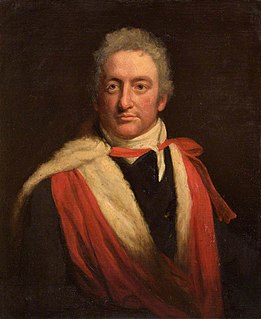Henry Jenkes (died 1697), was a Gresham Professor of Rhetoric.
The Professor of Rhetoric at Gresham College, London, gives free educational lectures to the general public. The college was founded for this purpose in 1596 / 1597, when it appointed seven professors; this has since increased to nine and in addition the college now has visiting professors.
Jenkes was descended from a Prussian family, was a native of England, and received his early education at King's College, Aberdeen, where he was admitted in 1642, and graduated M.A. in 1646. [1] On 21 March 1646 he was admitted a member of Emmanuel College, Cambridge, and in 1649 he was incorporated M.A. in that university. [2] He was elected a fellow of Caius College, Cambridge, in the time of the civil war. On the occasion of the opening of the Sheldonian Theatre he was incorporated M.A. at Oxford, 13 July 1669. He was elected professor of rhetoric in Gresham College, London, on 21 October 1670, in succession to Dr. William Croone. He was elected a fellow of the Royal Society on 30 November 1674. He resigned his professorship on 2 October 1676, after which he resided wholly at Cambridge, living by his fellowship at Caius College. Dying there at the end of August 1697, he was buried on 1 September in the church of St. Michael, in which parish the college is situated. He corresponded with several learned men in Holland.

King's College in Old Aberdeen, Scotland, the full title of which is The University and King's College of Aberdeen, is a formerly independent university founded in 1495 and now an integral part of the University of Aberdeen. Its historic buildings are the centrepiece of the University of Aberdeen's Old Aberdeen campus, often known as the King's or King's College campus.

Emmanuel College is a constituent college of the University of Cambridge. The college was founded in 1584 by Sir Walter Mildmay, Chancellor of the Exchequer to Elizabeth I.

The Sheldonian Theatre, located in Oxford, England, was built from 1664 to 1669 after a design by Christopher Wren for the University of Oxford. The building is named after Gilbert Sheldon, chancellor of the University at the time and the project's main financial backer. It is used for music concerts, lectures and University ceremonies, but not for drama until 2015 when the Christ Church Dramatic Society staged a production of The Crucible by Arthur Miller.
By his Will dated 14 May 1684, Jenkes left his library and all his other worldly goods to his friend James Halman, another fellow of Caius, who was his sole executor. [3]

James Halman was an academic of the University of Cambridge. He held the office of Registrary of the university from 1683 to 1701 and was also the twenty-third Master of Gonville and Caius College.




